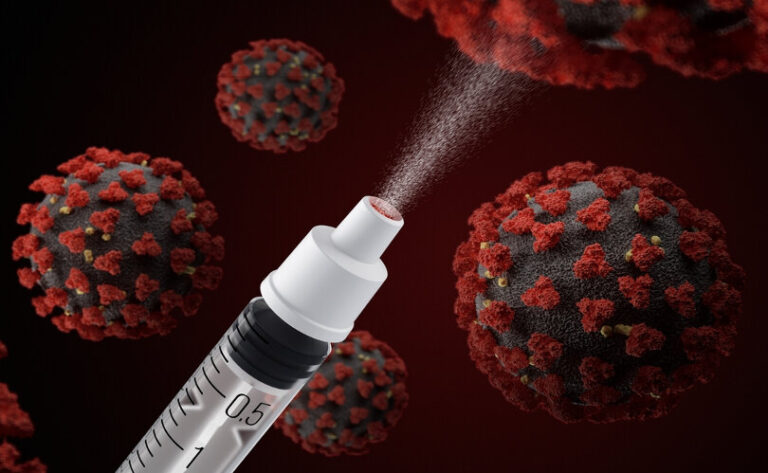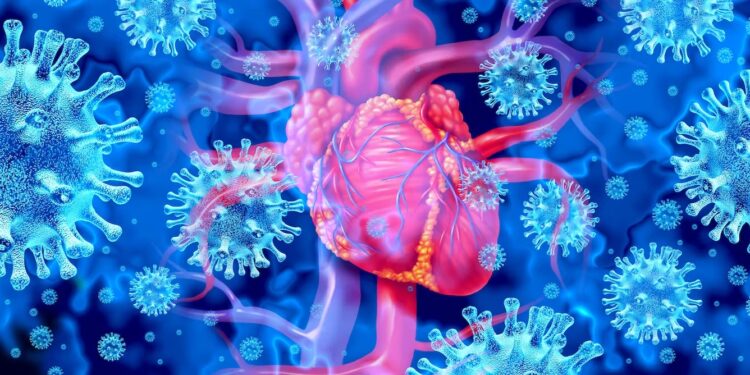Psychosis, Panic Attacks, Hallucinations: Bizarre Psychiatric Cases Among the COVID Vaccinated
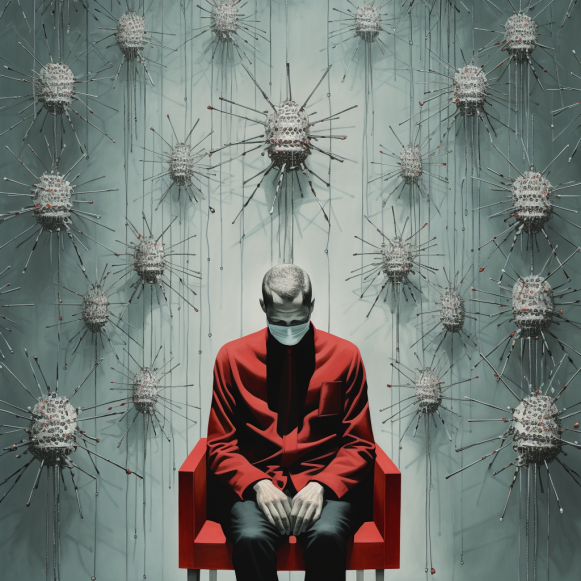
Dr. Patrick William Slater, 60, is a neurotologist. He used to have a full-time medical practice in Austin and spent his free time hunting and fishing in the mountains.
Then, in October 2021, Dr. Slater was diagnosed with cerebellar ataxia, a movement disorder. He couldn’t eat or use the restroom without assistance.
While drugs could help him manage his ataxia, they weren’t always effective against his main complaint: uncontrollable panic attacks.
Dr. Slater would have panic attacks almost every night, leaving him in “abject terror.” He considered suicide several times, he told The Epoch Times.
No one could give him a satisfactory explanation for why he had developed these symptoms. His laboratory results revealed nothing abnormal, and his neurologists and psychiatrists dismissed his symptoms as anxiety.
Dr. Slater, on the other hand, is convinced that the COVID-19 mRNA vaccines are to blame.
When the symptoms first appeared about two weeks after receiving the second dose of the COVID shot, Dr. Slater was suspicious. His third shot had coincided with the second—and worse—wave of career-ending symptoms.
“There was no question in my mind,” Dr. Slater said after taking the booster.

Unusual Psychiatric Illness is on the rise.
With the rollout of the COVID vaccine in late 2020, some doctors have noticed an increase in unusual psychiatric illnesses.
Dr. Amanda McDonald, a psychiatrist, noticed a wave of psychiatric destabilization among her stable patients. They had flare-ups, which were often accompanied by worsened or new psychiatric symptoms.
“I couldn’t figure out why,” Dr. McDonald explained to The Epoch Times. “My patients typically stay stable.” However, many stable patients began showing up at her office with insomnia, depression, and anxiety “without any rhyme or reason.”
She increased the doses of some patients’ medications or added new medications to their regimen, but it had little effect.
Atypical panic attacks, which can mimic a heart attack, are a recurring pattern that Dr. McDonald observes. Symptoms typically worsen as the evening progresses and peak at night, with no apparent cause. A typical panic attack can occur at any time during the day, but it frequently has triggers, which are simple to avoid.
Dr. McDonald realized that COVID-19 vaccines may be linked to her patients’ psychiatric illnesses after following them for over a year.
“When the pandemic struck, I already had a patient population that I was very familiar with.” “What I saw in that patient population were manifestations,” Dr. McDonald added.
Dr. Diane Counce, a neurologist and neuroradiologist, noticed an increase in severe anxiety as well as a worsening of mood.
“People also talk about how their personality has changed,” she said, according to The Epoch Times. When a patient is brought in by a family member, “[the family] will say, ‘they’re just different.'”
Nurse practitioner Scott Marsland, who has treated hundreds of long-COVID and vaccine-injured patients at the Leading Edge Clinic, added that the most common symptoms he has seen are debilitating anxiety, depression, and insomnia. Some patients, however, have developed hallucinations and suicidality.
The Proving
In contrast to myocarditis, there is no conclusive evidence that COVID-19 vaccinations cause psychiatric illness. However, numerous studies have linked COVID-19 vaccines to psychiatric symptoms such as depression, anxiety, panic attacks, psychosis, and suicidality.
The Vaccine Adverse Event Reporting System (VAERS) is a self-reporting database co-managed by the Centers for Disease Control and Prevention (CDC) and the Food and Drug Administration (FDA) in the United States that is used to monitor for early warning signs of potential adverse reactions. VAERS has documented over 9,400 and 1,600 cases of anxiety and depression in relation to the COVID-19 vaccines, respectively. Vaccines account for more than 60% and up to 50% of all anxiety and depression reports on VAERS, respectively.
Other less common adverse reactions include 1,500 reports of panic attacks (more than 80% of VAERS reports), over 1,100 cases of hallucinations (more than 65%), and 975 cases of irritability (10%).
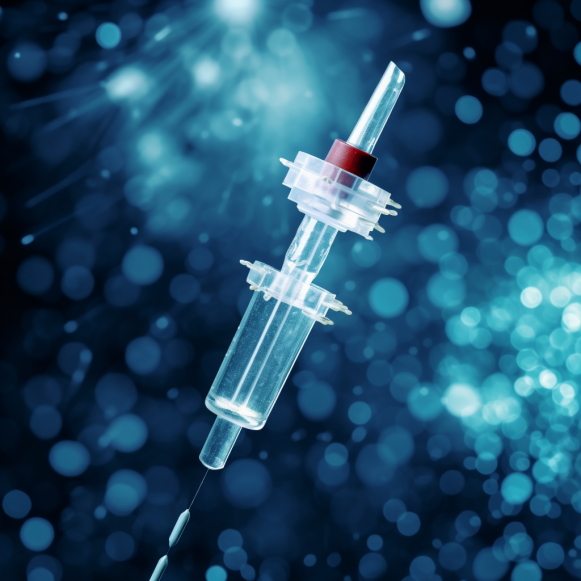
Some researchers believe the rare and fatal cases reported on VAERS are an indication that the system is being abused. Others, on the other hand, believe they point to a possible link to the vaccine and are worth investigating.
Psychosis
Hallucinations and paranoia are both symptoms of psychosis. Acute episodes following the injections have been reported in case studies.
Within 24 hours of receiving the mRNA COVID-19 vaccine, a previously healthy woman in her late 30s developed refractory psychosis. She was aggressive, her thoughts were disorganized, and she believed she was being persecuted in the hospital.
Doctors gave her antipsychotics and mood stabilizers, but after four months in the hospital, only her behavior had improved. Her psychosis persisted.
Two days after his second Pfizer shot, a 15-year-old boy in Taiwan was admitted to the hospital with agitation, uncontrollable limb stretching, and screaming.
In the hospital, he displayed strange behaviors such as frequently sitting up and lying down and praying in bed. He was given antipsychotics, but the behavior persisted for more than a month after he was released.
He was then put on a steroid regimen by doctors. Anti-inflammatory steroids can help to calm an overactive immune system. The boy’s symptoms subsided.
A 17-year-old girl in India developed psychosis within 48 hours of receiving an inactive COVID-19 vaccine. She became restless and suspicious, began talking to herself, and suffered from insomnia for a month.
She had no neurological abnormalities, and all of her lab tests, including a COVID-19 test, came back normal. Her symptoms subsided two weeks after she was given psychoactive drugs.
The onset of symptoms soon after vaccination, the exclusion of other possible causes, and the lack of genetic predisposition “indicate the psychiatric adverse event may be related to the vaccine,” researchers from All India Institute of Medical Sciences and District Hospital wrote in a case report.
Psychosis that lasted several days, weeks, or months has also been reported in the literature.
Suicides and Suicidal Behavior
Suicide is a real risk for people with vaccine injuries, according to React19, a nonprofit advocacy group that helps people with postvaccine symptoms. However, it is frequently difficult to determine whether people become suicidal as a result of their injuries becoming unbearable or as a result of a primarily physiological reaction to the vaccine.
The CDC’s review of deaths reported following Pfizer vaccines discovered 14 deaths among vaccinated teenagers, two of whom died by suicide for unknown reasons.
According to a study of 250 dental staff in Pakistan, nearly 12% reported suicidal thoughts for a few days after vaccination. Every day, about 1% of people had suicidal thoughts.
Individual case studies revealed a Turkish man in his late 50s with no prior mental illness who arrived at the emergency department three days after taking a second shot. He was irritable, sleepless, and talked to himself.
Doctors from Wakayama Medical University vividly described the case of a Japanese man (pdf).
He felt tired after the first booster shot and developed a mild headache and a floating sensation after the fourth shot.
However, four days after vaccination, he became extremely talkative with grandiose delusions, “claiming to have won 2 billion yen in horse racing.” He also displayed emotional instability, such as crying while saying, ‘Everyone would be happy.'”
No neurological disorders, such as possible encephalitis, or signs of infection were discovered by the neurologist he saw. He jumped from the second floor of his house more than a week after vaccination and was taken to the hospital by ambulance.
Suicides have been on the rise in the United States since the pandemic. The CDC reported up to 46,000 suicides in 2020 (pdf). This figure rose to over 48,000 in 2021, and nearly 50,000 people committed suicide in 2022. While pandemic restrictions such as lockdowns and long COVID have been linked to suicides, no studies have been conducted to date to link rising suicide rates to the COVID-19 vaccine.
Interaction With Cognitive Impairments
Psychiatric symptoms may overlap with cognitive impairments such as poor memory. Dementia, for example, can cause symptoms similar to depression.
Dr. McDonald was treating a vaccinated patient who was suffering from dementia-like depression. Despite her advanced age, the patient was highly independent and lived alone. She was diagnosed with dementia and placed in a nursing home after receiving the booster.
Ivermectin treatment alleviated her symptoms.
Neurologists, such as Dr. Suzanne Gazda, are concerned about untreated cases. “There are so many people that don’t even realize that they’re injured.”
Dr. Gazda has an integrative practice and treats thousands of patients with neurodegenerative diseases, many of whom report cognitive decline in addition to psychiatric symptoms.
Dr. Counce has a number of vaccinated patients who have developed brain atrophy. One patient suffered from hippocampal atrophy, which caused memory loss and personality changes.
Dr. Counce reasoned that if the hippocampus, the brain’s memory center, atrophies, the limbic system, which processes emotions, may suffer similarly.

Possible Root Causes
But how exactly can vaccines cause a person’s mental state and personality to change?
Doctors who treat both postvaccine and post-COVID conditions say the symptoms of the two syndromes are very similar.
The COVID-19 virus and the vaccines both expose patients to the viral spike protein, which has the potential to cause inflammation. Depression is the disease most commonly associated with inflammation, but bipolar disorder, schizophrenia, and anxiety are also associated.
According to holistic psychiatrist Dr. Aruna Tummala, mRNA technology has long been studied, and pre-2020 research clearly shows that mRNA vaccines are highly inflammatory.
Anti-inflammatory drugs and therapeutics, such as ivermectin, hydroxychloroquine, and hyperbaric oxygen therapy, have been shown by Dr. McDonald to help patients stabilize their moods.
She gave ivermectin to her psychiatric patients who had become destabilized as a result of the vaccines and saw significant improvement.
She developed long COVID after infection as a doctor who had treated hundreds of vaccine-injured and long-COVID patients. She awoke with unfathomable negative thoughts. “I put myself in a hyperbaric machine,” she explained, and “my mood symptoms had disappeared 10 minutes later.”
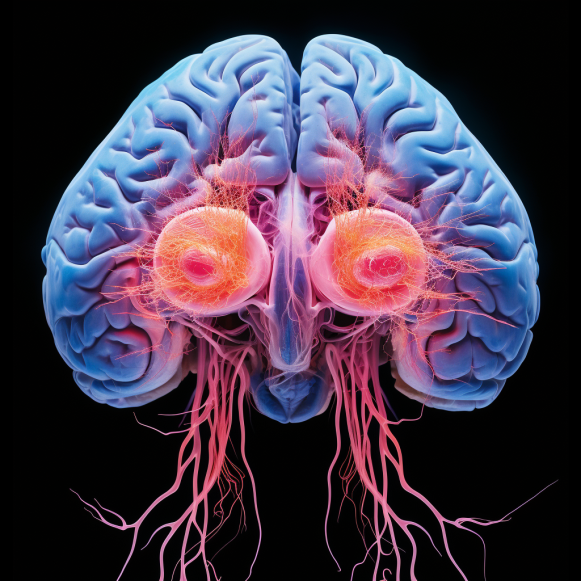
Possible Root Causes
But how exactly can vaccines cause a person’s mental state and personality to change?
Doctors who treat both postvaccine and post-COVID conditions say the symptoms of the two syndromes are very similar.
The COVID-19 virus and the vaccines both expose patients to the viral spike protein, which has the potential to cause inflammation. Depression is the disease most commonly associated with inflammation, but bipolar disorder, schizophrenia, and anxiety are also associated.
According to holistic psychiatrist Dr. Aruna Tummala, mRNA technology has long been studied, and pre-2020 research clearly shows that mRNA vaccines are highly inflammatory.
Anti-inflammatory drugs and therapeutics, such as ivermectin, hydroxychloroquine, and hyperbaric oxygen therapy, have been shown by Dr. McDonald to help patients stabilize their moods.
She gave ivermectin to her psychiatric patients who had become destabilized as a result of the vaccines and saw significant improvement.
She developed long COVID after infection as a doctor who had treated hundreds of vaccine-injured and long-COVID patients. She awoke with unfathomable negative thoughts. “I put myself in a hyperbaric machine,” she explained, and “my mood symptoms had disappeared 10 minutes later.”

Blood clotting, a common side effect of spike protein, reduces tissue oxygenation and renders tissues unable to function optimally, forcing them to age.
As neurons become stressed and damaged, blood clotting in the brain can cause cognitive impairments and symptoms of anxiety, depression, and psychosis.
One of Dr. Counce’s patients complained of anxiety, erectile dysfunction, and visual impairment. His visual problems improved after he began taking medication for erectile dysfunction (vasodilator drugs that increase blood volume). Dr. Counce treated the patient with aspirin and nattokinase after discovering that he had microclotting.
Spike protein can also cause direct damage to the brain, potentially resulting in a disruption in brain activity and psychiatric problems.
It can also infiltrate immune cells and cause histamine release. Histamine has the ability to enter the brain and inflame and irritate the nerves.
Suicidality has been linked to neuroinflammation, and a type of antihistamine medication has also been linked to a lower risk of suicide.
Mr. Marsland has a postvaccine patient who experienced only physical symptoms. The patient became suicidal all of a sudden one day.
Mr. Marsland determined after a lengthy conversation that the patient’s only change was switching from black tea to pu-erh tea.
“Pu-erh has an incredibly high histamine content,” Mr. Marsland said. “So he stopped drinking it, and guess what, within two days, he was back to baseline.”
Infections with specific viruses have also been linked to cognitive impairment. It has been demonstrated that the COVID-19 virus and its spike protein reactivate ancient viral genes in our bodies.
These genes are known as human endogenous retroviruses, or HERVs, according to Dr. Adonis Sfera, a psychiatrist at Patton State Hospital. HERVs are a type of virus found in the human genome.
HERV activation has been linked to psychiatric symptoms such as schizophrenia.
Spike protein has also been shown to reactivate the Epstein-Barr virus (EBV). EBV infections are also linked to psychosis.
COVID-19 vaccines have also been shown to harm the gut microbiome, which could lead to psychiatric symptoms because the gut produces many of our neurotransmitters.
The More Serious Issue
While patients with vaccine-related psychiatric illnesses can often be treated, it is concerning that some vaccine-injured patients are incorrectly diagnosed as mentally ill.
Following vaccination, many patients experience physiological symptoms. When they sought help from doctors, some were dismissed as anxious or stressed, according to Mr. Marsland.
Nicole Sclafani, a former charge nurse in an emergency room, experienced vision problems and chronic muscle pains three months after receiving her primary vaccine doses. Her symptoms worsened after contracting COVID-19, and she claims that antidepressants were prescribed to her by neurologists, rheumatologists, and even her gastroenterologist.
“I’ve even had a neurologist say, ‘I would be doing you a disservice if I didn’t tell you that all of your symptoms are from stress,'” Ms. Sclafani told The Epoch Times.
When she first saw doctors, she told them she suspected a vaccine reaction was to blame. She has since stopped telling them.
“Almost every doctor, if I said it was the vaccine, you could see their face … I was a nurse, I know that look,” Mrs. Sclafani said.
Vaccine injuries appear as a cluster of unusual symptoms, and some doctors are hesitant to attribute these to the vaccine. As a result, rather than addressing the underlying pathology, doctors frequently dismiss their patients’ symptoms as psychosomatic. Some people are diagnosed with functional neurological disorders and are then prescribed psychiatric medications.
According to psychiatrist Dr. Cristian Ciora, who is trained in psychoanalysis, functional neurological disorder is poorly defined. It refers to a condition in which the mind uses physical symptoms to solve psychological problems.
“It shouldn’t be a throwaway diagnosis.” “You need some kind of proof that the mind produces those things, and that’s not easy,” he explained.
Furthermore, Dr. Ciora has observed that the vaccine-injured are more likely to experience side effects and paradoxical reactions from psychoactive medications.
According to research, the lipid nanoparticles found in mRNA vaccines interact with psychotropic drugs. Some drugs may stay in the patient longer, and a normal dose may become toxic.
Some anti-inflammatory psychiatric medications, such as lithium and fluvoxamine, may be neuroprotective. Many, however, have the potential to be harmful. This includes escitalopram, the most commonly prescribed antidepressant, which has been shown in one study to change the architecture of a previously functional brain.
Paranoia in a Paranoia-Inducing Environment
Some vaccine-injured patients experience anxiety before seeing doctors, and others have difficulty trusting them.
Ms. Sclafani became paranoid about her doctors’ medical decisions as more and more doctors prescribed her antidepressants.
Doctors prescribed her selective serotonin reuptake inhibitors (SSRIs) or serotonin and norepinephrine reuptake inhibitors (SNRIs) despite her low sodium levels, which could be dangerous because they lower sodium levels. She informed the doctors about her medical condition, but they did not appear to be interested.
“I am afraid that the doctor didn’t care enough, listen enough, pay attention enough,” she said. “In the case of sodium, if you had been paying attention, you would never have prescribed [those drugs].” So that’s where I’m going to leave the office. I go get the prescription filled, but I never take the medication. From a psychiatric standpoint, that could be considered paranoia, but I believe it is validated.”
Vaccine-injured people, particularly those who received the vaccine out of goodwill, may experience a breakdown of their worldview as well as of themselves, according to Dr. Ciora.
He uses the iconic scene from the film “The Matrix” as an example.
The main character, Neo, takes a red pill and discovers that he has spent his entire life living in a machine-generated reality. He vomits in disbelief because he cannot accept this reality.



